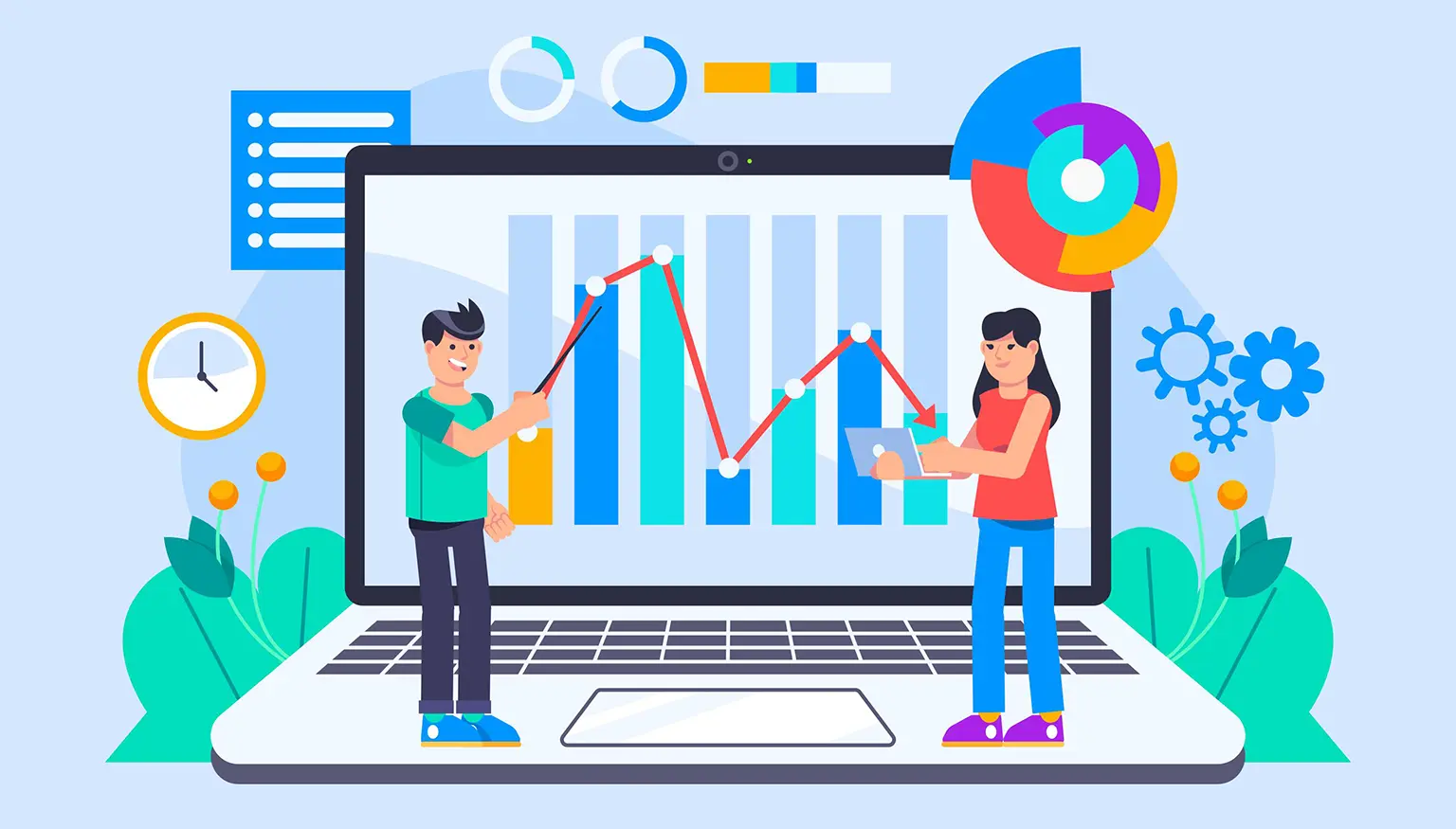Introduction
In the ever-evolving landscape of digital marketing, one factor remains constant: the power of data. Analytics has become the backbone of successful digital marketing campaigns, guiding businesses to make informed, data-driven decisions. In this article, we’ll explore the significance of analytics in digital marketing and how leveraging data can enhance the effectiveness of your campaigns.
The Data Revolution
The digital world generates an abundance of data every second. From website visitors and social media interactions to email open rates and e-commerce transactions, data is everywhere. This influx of information provides a unique opportunity for businesses to better understand their audience and tailor their marketing strategies accordingly.
Why Analytics Matters
- Measuring Performance: Analytics allows you to track the performance of your marketing efforts. You can see what’s working and what’s not, enabling you to make necessary adjustments.
- Audience Insights: Data analytics provides valuable insights into your target audience’s behavior and preferences. This knowledge is key to creating relevant and engaging content.
- ROI Tracking: Knowing which marketing channels and campaigns are most effective helps you allocate your budget more efficiently, improving your return on investment (ROI).
- Competitive Advantage: Businesses that harness the power of data have a competitive edge. They can adapt quickly to market changes and customer preferences.
Key Components of Digital Marketing Analytics
Effective digital marketing analytics involves tracking various metrics and key performance indicators (KPIs). Here are some key components to consider:
Website Analytics
- Traffic Sources: Identify where your website traffic is coming from, whether it’s organic search, social media, referrals, or paid advertising.
- User Behavior: Analyze how users navigate your site, which pages they visit, and how long they stay.
- Conversion Tracking: Measure the effectiveness of your website in converting visitors into leads or customers.
Social Media Analytics
- Engagement Metrics: Monitor likes, shares, comments, and other interactions on social media platforms.
- Follower Growth: Track the growth of your social media followers to assess the impact of your content and engagement strategies.
- Click-Through Rates (CTR): Measure how many users click on your social media posts to visit your website.
Email Marketing Analytics
- Open Rates: Analyze the percentage of recipients who open your emails.
- Click-Through Rates: Track how many recipients click on links within your emails.
- Conversion Rates: Measure the rate at which email recipients take a desired action, such as making a purchase.
SEO Analytics
- Keyword Rankings: Monitor the positions of your target keywords in search engine results.
- Organic Traffic: Measure the amount of traffic your website receives from search engines.
- Backlink Analysis: Evaluate the quality and quantity of backlinks to your website.
Pay-Per-Click (PPC) Advertising Analytics
- Click-Through Rates (CTR): Measure the percentage of users who click on your ads.
- Conversion Tracking: Analyze how many ad clicks result in desired actions, like completing a purchase.
- Ad Spend and ROI: Assess the cost-effectiveness of your PPC campaigns.
Using Data for Informed Decision-Making
Data is most valuable when it informs decision-making. Here’s how you can utilize digital marketing analytics to make informed choices:
Content Optimization
Analyzing which content performs best allows you to create more of what resonates with your audience. Whether it’s blog posts, videos, or infographics, data helps you refine your content strategy.
Targeted Advertising
Understanding your audience’s demographics and interests enables you to create highly targeted ad campaigns. This not only improves ad relevance but also reduces ad spend wastage.
A/B Testing
Analytics empowers you to run A/B tests on various elements of your digital marketing campaigns. You can test different headlines, images, or calls to action to identify what resonates best with your audience.
Marketing Budget Allocation
By tracking ROI for different marketing channels, you can allocate your budget where it’s most effective. This ensures you get the most value for your marketing spend.
Customer Journey Analysis
Mapping the customer journey, from the first touchpoint to conversion, helps you identify areas where prospects drop off and take action to improve those stages.
GEAMUS and Data-Driven Digital Marketing
At GEAMUS, we understand the pivotal role of data analytics in digital marketing. Our digital marketing services are grounded in data-driven strategies, ensuring that every campaign is guided by insights and focused on achieving your specific goals.
Elevate your digital marketing with data-driven decisions. Contact us to learn how we can help you harness the power of analytics for your marketing success.
Conclusion
In the digital marketing landscape, analytics is the compass that guides your efforts in the right direction. It empowers businesses to understand their audience, measure their performance, and make informed decisions that lead to more successful campaigns. By harnessing the power of data-driven digital marketing, you can stay ahead of the competition, adapt to changing customer preferences, and continually improve your marketing strategies.
Ready to take your digital marketing to the next level? Contact GEAMUS to explore how data-driven decision-making can enhance your marketing success.

